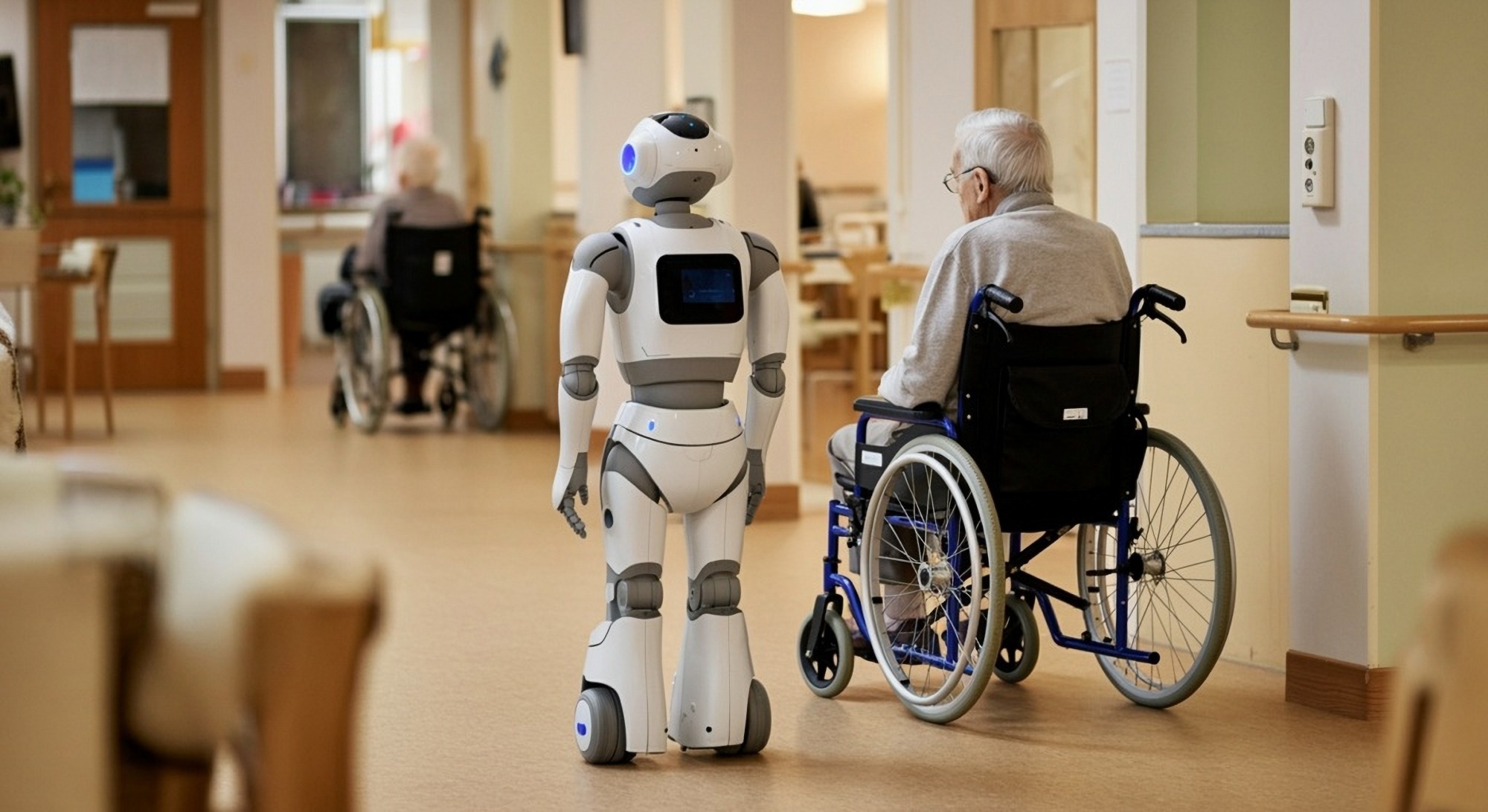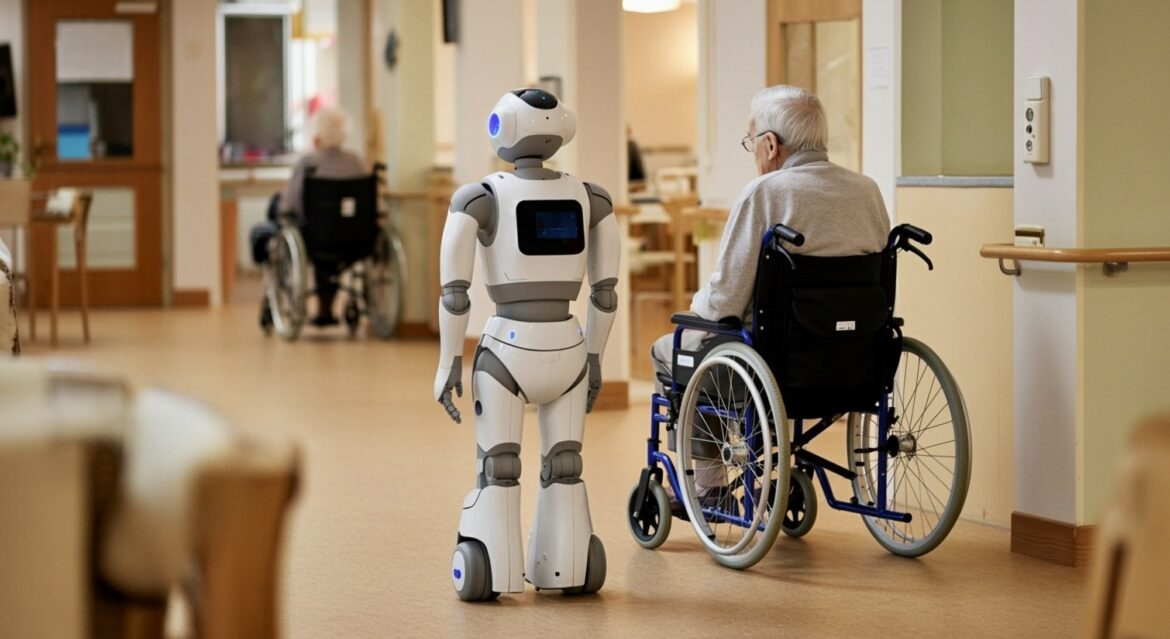A nationwide survey in Japan shows divides in acceptance of home-care robots. Surprisingly, openness and trust, rather than age, determine whether people are willing to let robots into their homes and share their personal data for research purposes.
 Study: Willingness to use home-care robots and views regarding the provision of personal information in Japan: comparison between actual or potential users and robot developers. Image credit: Shutterstock AI/Shutterstock.com
Study: Willingness to use home-care robots and views regarding the provision of personal information in Japan: comparison between actual or potential users and robot developers. Image credit: Shutterstock AI/Shutterstock.com
A team of researchers from Japan recently surveyed potential and actual users as well as developers of home-care robots to explore their willingness to use these robots and to provide robot-collected personal information for research and development purposes. A detailed survey report is published in the journal Computers in Human Behavior.
Japan’s aging crisis
Japan has the world’s fastest ageing population. The aging rate in the country was 29.3 % in 2024, which is predicted to reach 33 % by 2037. Since aging is often associated with physical and mental adversities, the need for caregivers is increasing to provide long-term care to older adults. However, the Japanese government has predicted a shortage of 570,000 caregivers by 2040.
To address potential challenges related to an aging society, various robotic technologies have advanced in Japan, including home-care robots. These robots have been developed with the aim of providing high-quality home care services for older adults, supporting them with daily life activities, and thereby improving their overall quality of life.
Despite several advantages, the widespread introduction and implementation of home-care robots raise particular concerns, including the risk of malfunction, a lack of human interaction, operational difficulties, high costs, and insufficient education and training opportunities.
Japan has adopted various strategies to promote home-care robots. The country is also reforming its health policy to enhance data use by 2025, which will facilitate medical institutions and long-term care facilities to understand the needs of people and provide them with personalized services. However, since home-care robots collect and store patients’ data, users and their families need to know how this data is used.
To explore public willingness to use home-care robots and provide personal information for research and developmental purposes, a team of Japan-based researchers surveyed older adults, their family members, care providers, and employees of companies that develop and market home-care robots.
The survey included valid responses from 1122 actual and potential users (adults aged 65 years and older, family caregivers, home-care staff, and nurses at a general hospital) and 83 developers (company employees).
Privacy concerns and robot acceptance
The survey findings revealed that women are more willing to use home-care robots for their family members than men. The highest willingness to use robots for oneself and one’s family members was observed among adults aged 65 years and below.
Factors that influenced the willingness of actual or potential users to use home-care robots included age, receipt of long-term care, interest in robot-related news, and motivation to contribute to society.
Regarding ethical considerations, two factors influenced users’ willingness to use robots: openness to using robots and willingness to use robots that are still in the research and development stage. However, their willingness remained unaffected by the concerns about safety and privacy.
Developers, on the other hand, prioritized safety and privacy protection. Specifically, their willingness to use robots was influenced by concerns about safety and privacy, as well as their openness to using robots and their willingness to use robots that are still in the research and development stage.
Regarding the use of personal information collected by home-care robots, the survey observed significant differences between users and developers. Developers were more likely to permit the use of their personal information for monitoring purposes or research and development. Among users, approximately 80 % expressed their willingness to provide personal information to professionals for research and development purposes, and around 40 % to 50 % expressed their willingness to offer it to development companies.
Building trust through openness
The survey findings indicate that individuals interested in robot-related news are more likely to use home-care robots. In contrast, older adults and those with prior experience in long-term care are less willing to use these robots than their family members and home-care providers. These findings highlight the need to address the challenges of adopting participatory design that includes older adults, their families, and home-care staff in the implementation of home-care robots.
Companies that develop home-care robots should focus on the challenges and difficulties faced by older adults in healthcare and long-term care facilities and find appropriate solutions. As stated by researchers, it is essential to create a collaborative ecosystem that spans from development to implementation by fostering mutual understanding and aligning the interests of all stakeholders, including older adults, their families, and home-care providers.
According to the survey findings, openness is another vital factor that significantly influences the willingness of both users and developers to use home-care robots. Anime and other programs featuring human-friendly robots are popular among the Japanese, which may contribute to their openness to robots. Since openness and familiarity are two vital factors in gaining trust in home-care robots, developers should ensure that these robots are easily understandable to users, especially older adults.
Notably, the survey finds that concerns about safety and privacy significantly influence the willingness of developers to use home-care robots. Companies should therefore prioritize user safety and data protection in their designs.
Another vital observation is that users are willing to share personal information with medical professionals for research and developmental purposes, but are hesitant to share the same with robot-developing companies, highlighting the need for trust and transparency in development.
Overall, the survey findings highlight the need for collaborative ecosystems to develop and implement home-care robots in Japan.
Download your PDF copy now!


AloJapan.com